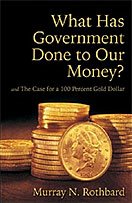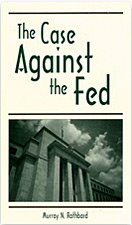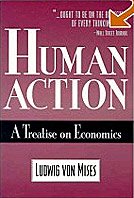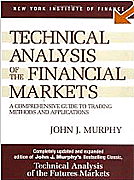ECB's confidence trick won't restore faith in market
By Damian Reece, City Editor
The Telegraph, London
Friday, August 10, 2007
Confidence is like oxygen. It is colourless, odourless and tasteless. You really appreciate its importance only when it's not there.
Business is all about confidence. When it's there in abundance economies grow, wealth is created and employment expands.
When confidence dissipates so does growth, economies go into reverse and people lose their jobs. We are witnessing the start of that second phase as confidence starts to leak out of markets, hissing out of the widening cracks in the financial system and into the ether.
The most obvious sign of escaping confidence was yesterday's decision by the European Central Bank (ECB) to provide E95 billion (Β£65 billion) of emergency funding to institutional borrowers who have seen the supply of cash dry up.
Banks rarely say "no" to institutions (mainly their brother banks) but instead simply hike the price of loans, making it too expensive to borrow. That's what happened yesterday to the London interbank offered rate (Libor).
The fact that Libor rates jumped reveals that banks no longer want to lend money, a fairly major problem in any economy. They don't want to lend because they've lost confidence.
The biggest loss of confidence has come in the massive financial markets that support vehicles such as asset-backed conduits, set up and supported generally by banks.
These vehicles have been amongst the heaviest buyers of American sub-prime mortgages, high-risk home loans that are parcelled up and sold as bonds paying a highish interest rate to brave investors.
To pay for these investments, asset-backed conduits borrow in the short-term money markets. As long as you borrow at a lower rate than you're being paid to invest, then you'll make a profit. But banks lending to these vehicles are getting increasingly nervous at the rate at which Americans (and increasingly now the British) are defaulting on their mortgages, which means investors are going to lose their money and the banks will have no chance of getting their money back.
But these liabilities are so widely distributed throughout the markets that banks have no idea where the biggest hits are going to come from, so they've simply shut up shop.
Lending terms have become more Draconian, cash is available but only for one day rather than 10, for instance. In other words, the supply of cash has dried up and therefore its price has shot up.
Controversially the ECB has now stepped in and lowered the price of money by supplying E95 billion of the folding stuff. Why? Because the alternative would have been simply too awful to contemplate.
Unable to borrow to fund their positions, our friends the asset-backed conduits would have been forced into the alternative action of deleveraging, reducing their exposure and that would have meant selling their toxic sub-prime debt investments.
But as we also saw yesterday from French bank BNP Paribas, that's frankly impossible. There are no buyers, and the "assets" themselves can't even be priced never mind sold.
To avoid guaranteed panic in the financial markets the ECB has tried to infuse some confidence, but it's entirely artificial. The underlying problem of consumers and investors having borrowed too much, now facing huge deficits and losses, is not about to disappear overnight.
The ECB's move was not an act of confidence, it was a confidence trick. When it comes to central bankers, actions speak louder than words.
The ECB's E95 billion intervention speaks volumes while our very own Mervyn King was effectively mute when claiming yesterday it was too early to tell how bad things are. He, like all central bankers, can't tell it like it is for fear of precipitating a selloff. Like so many others, he simply hasn't got the confidence.
* * *
The Telegraph, London
Friday, August 10, 2007
Confidence is like oxygen. It is colourless, odourless and tasteless. You really appreciate its importance only when it's not there.
Business is all about confidence. When it's there in abundance economies grow, wealth is created and employment expands.
When confidence dissipates so does growth, economies go into reverse and people lose their jobs. We are witnessing the start of that second phase as confidence starts to leak out of markets, hissing out of the widening cracks in the financial system and into the ether.
The most obvious sign of escaping confidence was yesterday's decision by the European Central Bank (ECB) to provide E95 billion (Β£65 billion) of emergency funding to institutional borrowers who have seen the supply of cash dry up.
Banks rarely say "no" to institutions (mainly their brother banks) but instead simply hike the price of loans, making it too expensive to borrow. That's what happened yesterday to the London interbank offered rate (Libor).
The fact that Libor rates jumped reveals that banks no longer want to lend money, a fairly major problem in any economy. They don't want to lend because they've lost confidence.
The biggest loss of confidence has come in the massive financial markets that support vehicles such as asset-backed conduits, set up and supported generally by banks.
These vehicles have been amongst the heaviest buyers of American sub-prime mortgages, high-risk home loans that are parcelled up and sold as bonds paying a highish interest rate to brave investors.
To pay for these investments, asset-backed conduits borrow in the short-term money markets. As long as you borrow at a lower rate than you're being paid to invest, then you'll make a profit. But banks lending to these vehicles are getting increasingly nervous at the rate at which Americans (and increasingly now the British) are defaulting on their mortgages, which means investors are going to lose their money and the banks will have no chance of getting their money back.
But these liabilities are so widely distributed throughout the markets that banks have no idea where the biggest hits are going to come from, so they've simply shut up shop.
Lending terms have become more Draconian, cash is available but only for one day rather than 10, for instance. In other words, the supply of cash has dried up and therefore its price has shot up.
Controversially the ECB has now stepped in and lowered the price of money by supplying E95 billion of the folding stuff. Why? Because the alternative would have been simply too awful to contemplate.
Unable to borrow to fund their positions, our friends the asset-backed conduits would have been forced into the alternative action of deleveraging, reducing their exposure and that would have meant selling their toxic sub-prime debt investments.
But as we also saw yesterday from French bank BNP Paribas, that's frankly impossible. There are no buyers, and the "assets" themselves can't even be priced never mind sold.
To avoid guaranteed panic in the financial markets the ECB has tried to infuse some confidence, but it's entirely artificial. The underlying problem of consumers and investors having borrowed too much, now facing huge deficits and losses, is not about to disappear overnight.
The ECB's move was not an act of confidence, it was a confidence trick. When it comes to central bankers, actions speak louder than words.
The ECB's E95 billion intervention speaks volumes while our very own Mervyn King was effectively mute when claiming yesterday it was too early to tell how bad things are. He, like all central bankers, can't tell it like it is for fear of precipitating a selloff. Like so many others, he simply hasn't got the confidence.
* * *
Labels: central banks, financial crisis















![[Most Recent Quotes from www.kitco.com] [Most Recent Quotes from www.kitco.com]](http://www.kitco.com/images/live/t24_au_en_usoz_6.gif)
![[Most Recent Quotes from www.kitco.com] [Most Recent Quotes from www.kitco.com]](http://www.kitco.com/images/live/au_go_0030_ny.gif)
![[Most Recent Quotes from www.kitco.com] [Most Recent Quotes from www.kitco.com]](http://www.kitco.com/images/live/au_go_0365_ny.gif)
![[Most Recent Quotes from www.kitco.com] [Most Recent Quotes from www.kitco.com]](http://kitconet.com/charts/metals/silver/t24_ag_en_usoz_4.gif)

















0 ΣΧΟΛΙΑ (COMMENTS):
Post a Comment
<< Home